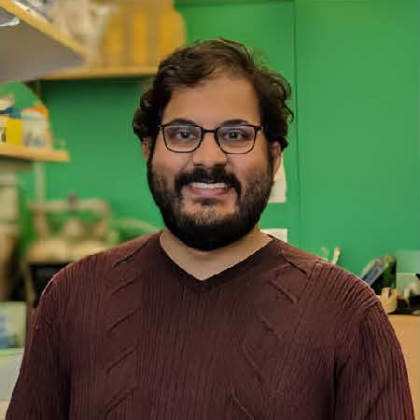Department of Biology Seminar: Pavak Shah

Description
Pavak Shah, an assistant professor of molecular, cell, and developmental biology at the University of California, Los Angeles, will give a talk titled "Building a Holistic Toolkit for Quantitative Embryology" for the Department of Biology. Erik Andersen will host.
This is a hybrid event; to attend virtually, use the Zoom link.
Abstract:
Understanding the basic processes that enable metazoan development requires bridging across broad biological scales: from genes to cells, tissues to organs, and from organisms to the evolutionary processes that drive biological innovation and diversification. At its core, the process of development itself is a balancing act. It requires the embryo to produce the right types of cells, in the right proportions, in the right quantities, at the right time, and the right place. Eutelic organisms that produce a fixed number of somatic cells in development offer a uniquely powerful tool in the developmental biologist's kit to tackle these questions. The fixed cell lineages of these organisms allows for empirical repeatability in measurement and perturbation across individuals and can anchor single cell resolution comparisons across even distantly related species. With the goal of broadening our access to gain insights into development from natural diversity and emerging or non-model systems, our group has recently developed a suite of computational and experimental tools for the measurement of cellular behaviors, gene expression, and anatomical processes in nematode embryos. These approaches take advantage of widely accessible technologies, provide an intuitive and rigorous mathematical framework for measurement, and lay the groundwork for new insights into diverse open problems in the study of multicellular development.
Who can attend?
- Faculty
- Students







